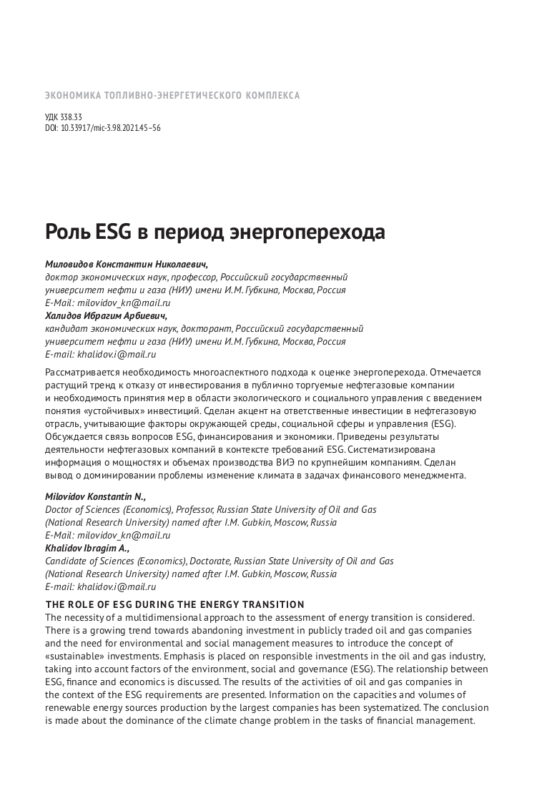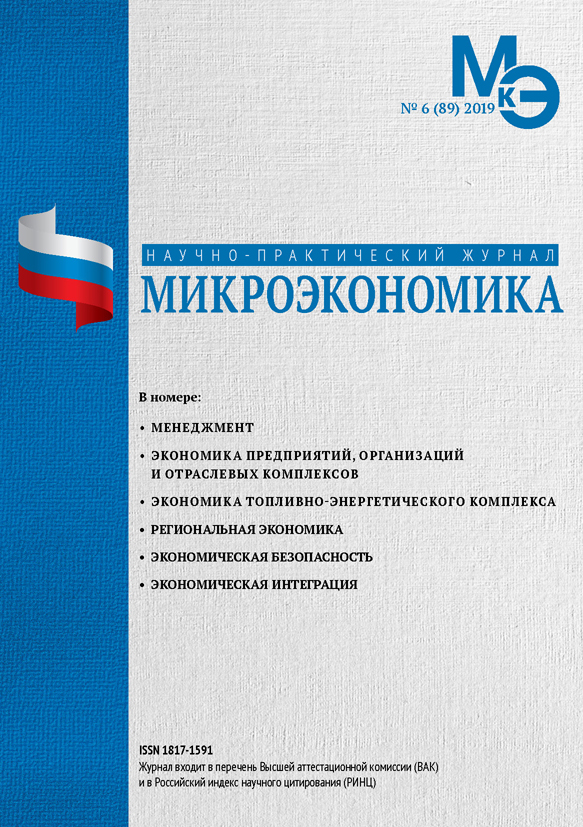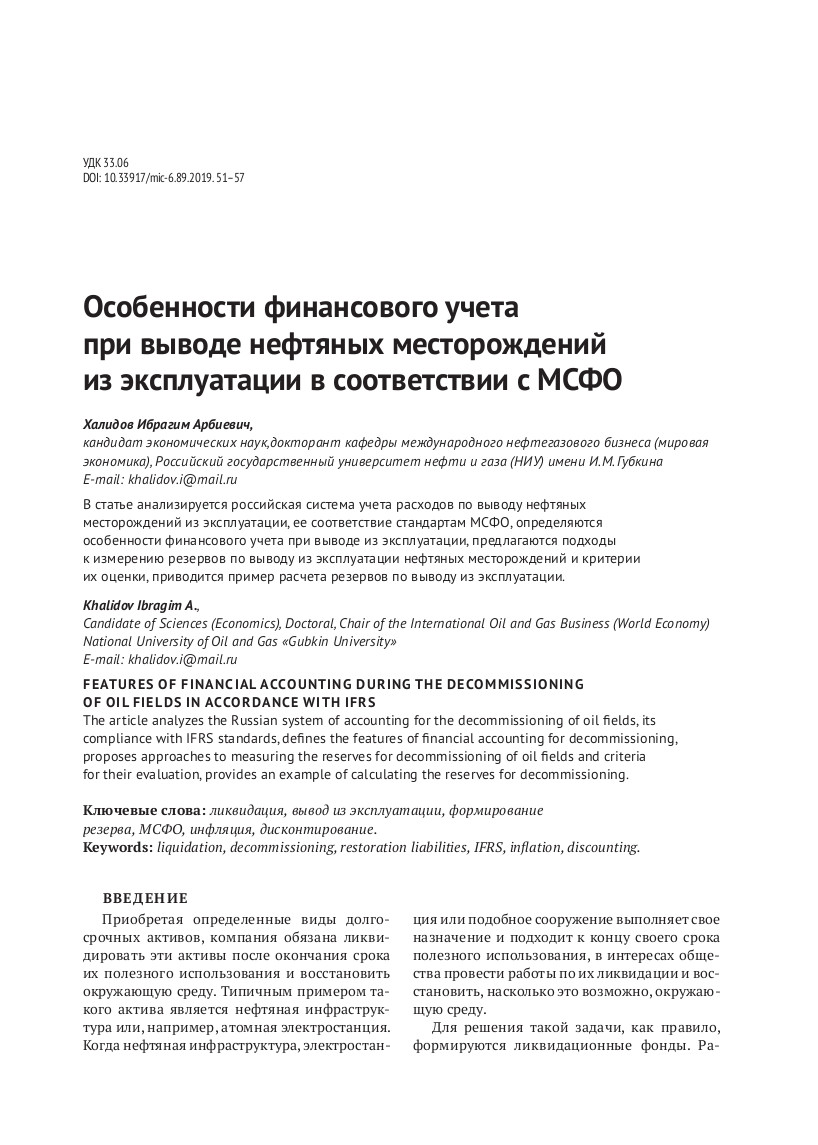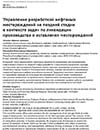The role of ESG during the energy transition
DOI: 10.33917/mic-3.98.2021.45-56
The necessity of a multidimensional approach to the assessment of energy transition is considered. There is a growing trend towards abandoning investment in publicly traded oil and gas companies and the need for environmental and social management measures to introduce the concept of “sustainable” investments. Emphasis is placed on responsible investments in the oil and gas industry, taking into account factors of the environment, social and governance (ESG). The relationship between ESG, finance and economics is discussed. The results of the activities of oil and gas companies in the context of the ESG requirements are presented. Information on the capacities and volumes of renewable energy sources production by the largest companies has been systematized. The conclusion is made about the dominance of the climate change problem in the tasks of financial management.






